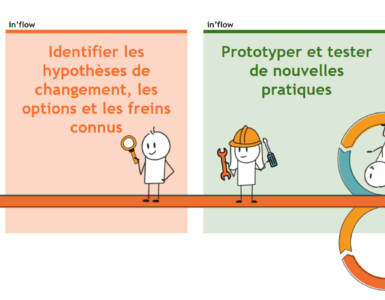In 2005, Fast Company Magazine named one of their articles “Why We Hate HR” and had the nerve to paradoxically state that “HR is the corporate function with the greatest potential”. Funny way to engage criticisms. Time has passed, things haven’t changed much and HR still suffer from negative reviews, to the point of being qualified as “useless” or “obsolete” by their worst detractors.
Aligned with the emergence of digital transformation practices, accent has been put on identifying tomorrow’s crucial talents. In that context, today’s HR top challenge is to be referenced as one of the key leader in most companies’ innovation process.
So, wait. Why are we trying to couple HR with digital again?
Well, it is pretty simple. Digital transformation directly targets humans interacting with each other, placing them at the heart of roadmaps – whether it is to enhance their roles, their creative minds or their visions of the company of the future.
Basically – knowing that – today’s question is less to wonder why HR Departments should get involved into transformation projects internally, but how they should use their voice to best enroll employees.
Easy to do if we naively consider that HR are the secret keepers of most of organizations memory and also the “spiritual guides” of managerial knowledge, right?
Last but not least, HR – as the legitimate voice of the group – are allowed and free to “feed” employees with best collaborative practices and other innovation-filled uses, without being judged. They have the power to impact humans directly and let’s be honest, that’s a huge seduction asset!!
What’s today’s picture exactly like?
Truth is, human resources are still very shy in getting involved into digital workforce. “Not their scope of work (…) not enough time (…) tricky internal political stakes to deal with”…etc, they say.
A 2014 study from the French Intranets Observatory has positioned Directions of Communication as the top winners in terms of digital projects lead, followed closely by IS Departments. Sadly, HR Departments only rank 5.
This year, only 21% of digital projects directly involved Human Resources Departments.
However, according to the study, they are making their way back on track and are positively predicted to get involved in collaborative projects in the upcoming years. Let’s not lose hope on that one and wish for better days.
Michael Aidan – current Head of Digital & VP Digital Brand Platforms at Danone’s – was invited to talk on this subject at LeWeb during the Digital Transformation Forum. I was happy to see that a question on HR’s implication was raised by the audience when he detailed how Danone successfully went on the digital road thanks to a strong network of champions. He actually stated that HR took part in the vision definition from the very beginning of his digital project:
“I needed to have them involved as they are key decision-makers and have a huge role to play in many steps of our digital roadmap, for ex. hiring talents and future digital leaders, but also on re-defining training offer at Danone’s”.
In gathering his whole corporate family around the table, Mr Aidan had seen right. HR have indeed a great deal of implication to show on knowledge management, internal mobility, new roles definition (i.e “Community Manager”) and collaborative “do’s and don’t’s”. After all, we are still dealing with a “human”-focused matter here.
Human Resources would gain so much in investing more time and energy on digital transformation. Plus, it will shut all the bad rumors down and tremendously boost their ego and credit in terms of decision-making effort.




